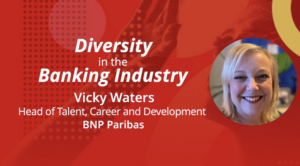Should HR invest in a diversity specialist?
- 5 Min Read
The conversation around Diversity & Inclusion is constantly changing. To unlock the benefits of diversity in the workplace, could a business benefit from investing in a diversity specialist?
- Author: Louron Pratt
- Date published: Oct 8, 2019
- Categories

With insightful knowledge from Teresa Boughey, Founder & CEO, Jungle HR, HRD Connect explores the outcomes of hiring a diversity & inclusion expert, and the biggest challenges behind making D&I a priority.
Making Diversity & Inclusion a priority is crucial to instil trust across an organisation. A recent Stonewall survey found employees feeling pressured to conceal their sexual orientation can heavily impact key drivers and reduce productivity by up to 30%. Companies that create environments that allow people to bring their whole selves to work are far more likely to achieve their collective potential.
Diversity & Inclusion experts can be key influencers in a business, they can do a brilliant job in adding purpose to every individual’s life regardless of gender, race, or demographic. However, if they’re not offered the right resources, their strategies could fall short.
“In the past few years, many diversity & inclusion specialist hires have been made. And whilst there’s a huge amount of excitement about these individuals holding the post, sadly, they haven’t stayed in the job for very long and nothing changed,” says Teresa Boughey, Founder & CEO at Jungle HR.
“It’s important that they are given a license to operate when they’re hired. Otherwise, they will just become frustrated, they will become ineffective, and leave.”
If businesses fail to address Diversity & Inclusion at work, attracting candidates, managing culture, and maintain business ethics may become more challenging.
“There is a growing trend for everybody to have the word ‘diversity’ in their job title if they happen to work in HR,” continues Teresa.
“Businesses need to be careful that people taking up those positions are suitably equipped, rather than just putting the word ‘specialist ‘ on their job description.”
“It can’t be tokenistic; companies have to ensure that diversity specialists are in a position to be influential and advise businesses on how to accomplish diversity issues.”
Investing in a diversity specialist comes with many challenges. A companies’ positive and consistent approach to supporting this cause is crucial if these issues are going to be solved.
“Organisations are becoming the key to solving issues related to diversity & inclusion. When you say the word diversity, many companies roll their eyes, thinking that they’ve already fixed the issue.”
Results of Boston Consulting Group’s (BCG) latest report found that although 63% of white male employees believed in their businesses D&I strategy, just 46% and 39% of BAME and LGBTQ+ trusted their employers to address workplace diversity issues. So, although there is a lot of talk around diversity & inclusion today, it may not be an urgent priority for many businesses.
“There’s a real lack of awareness about the fact that diversity & inclusion isn’t about a specific group, it’s about everyone working together.” continues Teresa.
“There’s also a lack of awareness around intersectionality. Consequently, that’s why there is resentment and fatigue building around diversity & inclusion.”
“When organisations start to look at systemic biases internally, managers can start to discover the root cause of the problem.”
Some organisations are transparent about their diversity pay gap, and many others help women negotiate better salaries. Continually finding ways to combat workplace inequality is key.
“Every business needs to be inclusive and take everyone on the same journey. It’s also important to accept that some leaders don’t believe there needs to be a diverse and inclusive workplace,” says Teresa.
“Diversity inclusion strategies cannot sit in isolation; they are integral in the overall business strategy.”
Aiding diversity and inclusion problems in the workplace isn’t a short-term project. Having vocal leaders who care about this cause and are continually thinking about the future of a diverse workplace is vital to achieving this long-term goal.
“Having accessible role models is something that organisations can do quickly,” continues Teresa.
“Companies can build for the future by collaborating with colleges, universities, and other networks. Utilising technology to create an inclusive environment and start to build your platform for the future can be key.”
Businesses need to think about how they can make their changes sustainable. An error for business leaders is introducing new initiatives, but struggling to keep all of them going.
“You can’t solve Diversity & Inclusion just for one week. It’s important to prioritise it all year round. Business leaders need to find a way of how they can keep diversity & inclusion strategies constantly running.” says Teresa.
There are many alternatives for companies that don’t have the resources to invest in diversity specialists.
“Working with strategic partners to create an inclusive business or creating a culture of coming together and celebrating successes can have a significant positive impact.”
There are many benefits from investing in a diversity and inclusion strategy and hiring a specialist could be key. However, these experts need to be given the time and resources to make positive and effective changes, if they are to insert a diverse and inclusive culture within an organisation.









